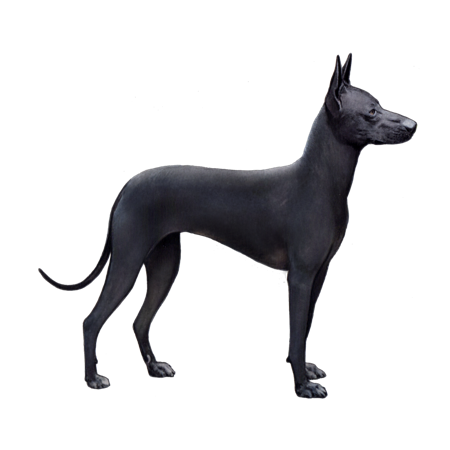
Yorkshire Terrier
Yorkshire Terriers are very alert, active, and lively. This breed loves to play and doesn't hesitate to protect family and territory—even against much larger dogs. Though Yorkies need lots of attention and companionship, they make excellent pets.
Interested in discovering if your dog is a Yorkshire Terrier?
Check out Wisdom Panel's DNA tests.

Yorkshire Terrier Traits
General Appearance
Yorkies have long shimmering coats and charming facial expressions. Because of its size, the Yorkshire Terrier is considered a toy breed.
Coat and Coloring
Yorkshire Terriers are a longhaired breed that comes in combinations of black and/or blue (a steel gray color) mixed with tan or more vibrant gold colors. Though uncommon, some have a tiny white chest blaze. Occasionally, the Yorkie's coat can be slow to develop color.
Distinctive Physical Traits
Yorkies are best known for their lustrous coats. Their silky hair hangs to the floor—straight and even on both sides of its body.
Yorkshire Terrier Temperament
Don't let the Yorkshire Terrier's size fool you—it's a fearless, determined, active (and sometimes stubborn) little dog. Yorkies might look like plush toys on the outside, but they are terriers through and through. That means they're lively, loyal, protective, and even bossy on occasion.
Yorkies love being with family and crave contact. They're also friendly to children—as long as kids treat them gently. This breed doesn't like to be left alone for long periods. And though they usually get along well with other small dogs, Yorkies may bark when confronted by larger dogs.


Yorkshire Terrier History
Toward the end of the 19th century, Scottish weavers lost work due to the industrial revolution. As they made their way to northern England to find ways to support their families, they brought their dogs along. These dogs likely mixed with Paisley and Clydesdale Terriers to create the first generation of Yorkshire Terriers.
The breed got its current name in 1870 and arrived in the United States in 1872. The American Kennel Club recognized the breed in 1885. But the Yorkshire Terrier back then was quite different from the breed we have now. To meet the increasing demand for companion dogs, selective breeding reduced the breed's average weight from 30 pounds to less than 10.
Yorkshire Terrier Care
Nutrition
The Yorkshire Terrier needs high-quality, age-appropriate dog food. All dogs run the risk of obesity if they eat too many calories. So, keep an eye on how much your Yorkie eats and reduce portions if your pup gains weight. Also, remember that giving too many treats in addition to regular meals can lead to weight gain.
Grooming
If kept long, the Yorkshire Terrier's coat requires daily brushing. It's best to trim or tie up the hair on the upper part of your Yorkie's head (i.e., the bangs). This prevents it from irritating the eyes. To simplify grooming, some owners opt to clip their Yorkie's coats short.
In addition to weekly baths, check your dog's ears regularly for any debris, and clean them as needed.
Exercise
Yorkshire Terriers need a moderate amount of activity to stay physically and mentally fit. Whether it's taking a walk, chasing after a ball (their favorite pastime), or playing in the yard, there are plenty of ways for Yorkies to get the exercise they need. This breed also enjoys earthdog trials, tracking, flyball, musical freestyle, and obedience.
If you live in an apartment or small home and don't have room to spare, don't worry. Yorkshire Terriers are an adaptable breed and do fine with limited space for exercise.
Training
Yorkies can be stubborn and independent. But you can overcome these tendencies by using reward-based obedience training rather than harsh words.
Early socialization with people and animals is also important. Introducing your Yorkshire Terrier to a variety of situations when young helps them develop into a friendly and well-mannered adult dog.

Yorkshire Terrier Genetic Health Conditions
-
Chondrodystrophy (CDDY) and Intervertebral Disc Disease (IVDD) Risk
Chondrodystrophy (CDDY) is a skeletal disorder characterized by shortened limbs and abnormal early degeneration of the spinal discs, or intervertebral disc disease (IVDD), which predisposes to disc herniation.
-
Leigh-like Subacute Necrotizing Encephalopathy (Discovered in the Yorkshire Terrier)
Leigh-like Subacute Necrotizing Encephalopathy (Leigh-like SNE) is a severe neurologic disorder that causes an early onset of wide-ranging signs, including seizures, incoordination, behavior changes, and vision deficits. The associated genetic variant has been identified in the Yorkshire Terrier.
-
Primary Lens Luxation
Primary Lens Luxation (PLL) is a condition that can cause the lens of the eye to become loose and eventually displace. The disorder is caused by degeneration of the fibers that hold the lens in place.
Knowing if your Yorkshire Terrier is a carrier or at-risk for these conditions can help you and your veterinarian plan for your pup’s lifelong care. With Wisdom Panel™ Premium, you can get results for over 200 genetic health tests.
Breed Group
Terrier
The Terrier Group ancestors were bred to hunt and kill vermin. They are often characterized as feisty and energetic dogs whose sizes range from fairly small to much larger.





















































